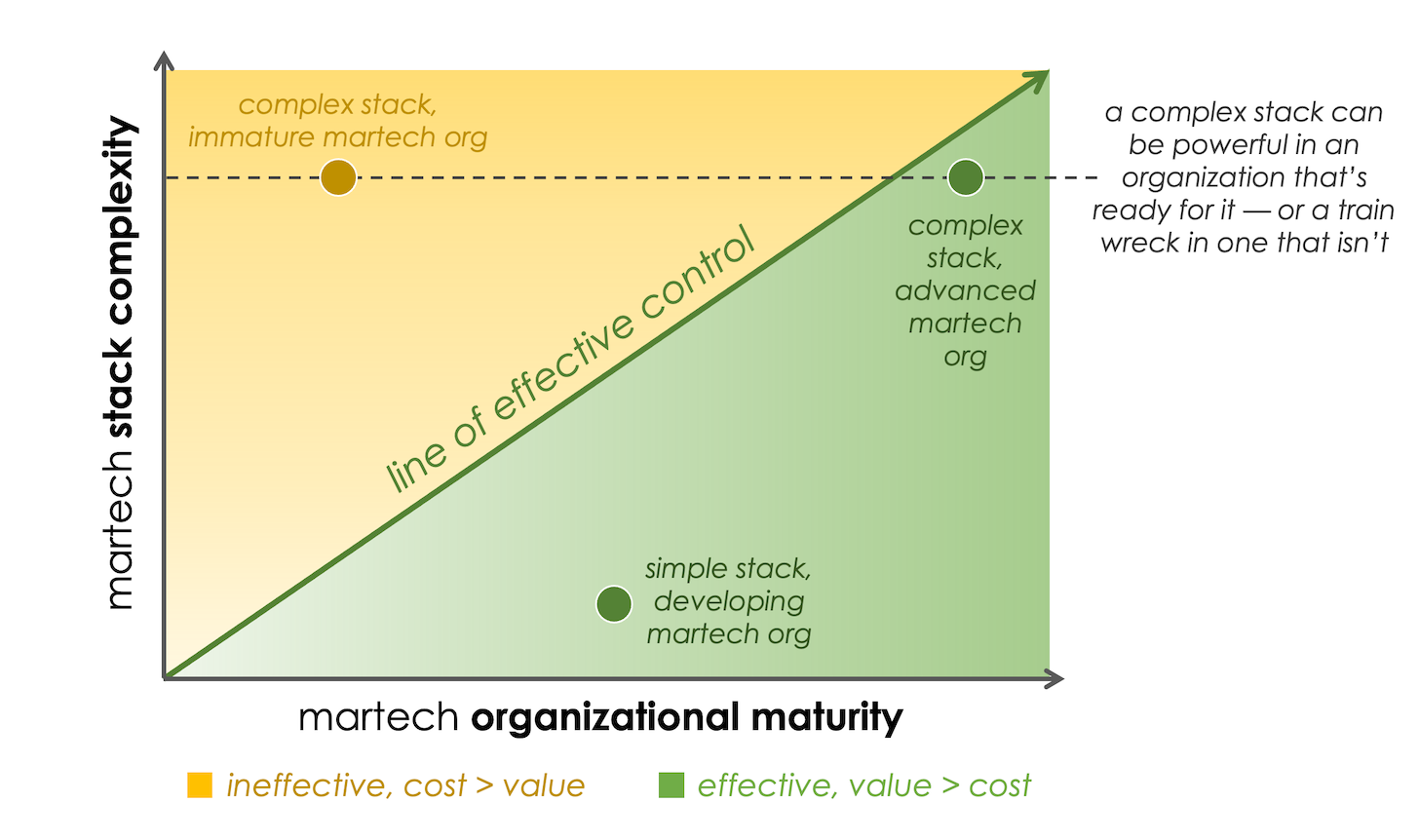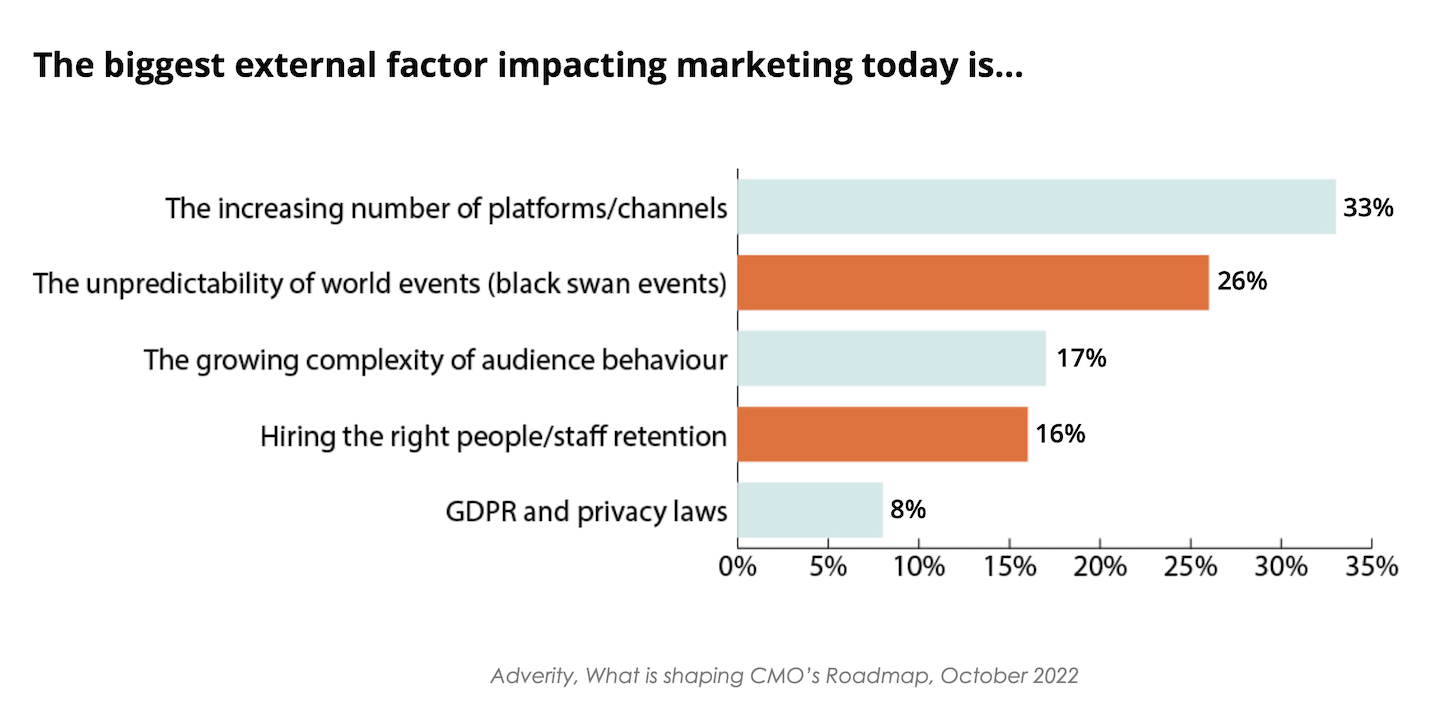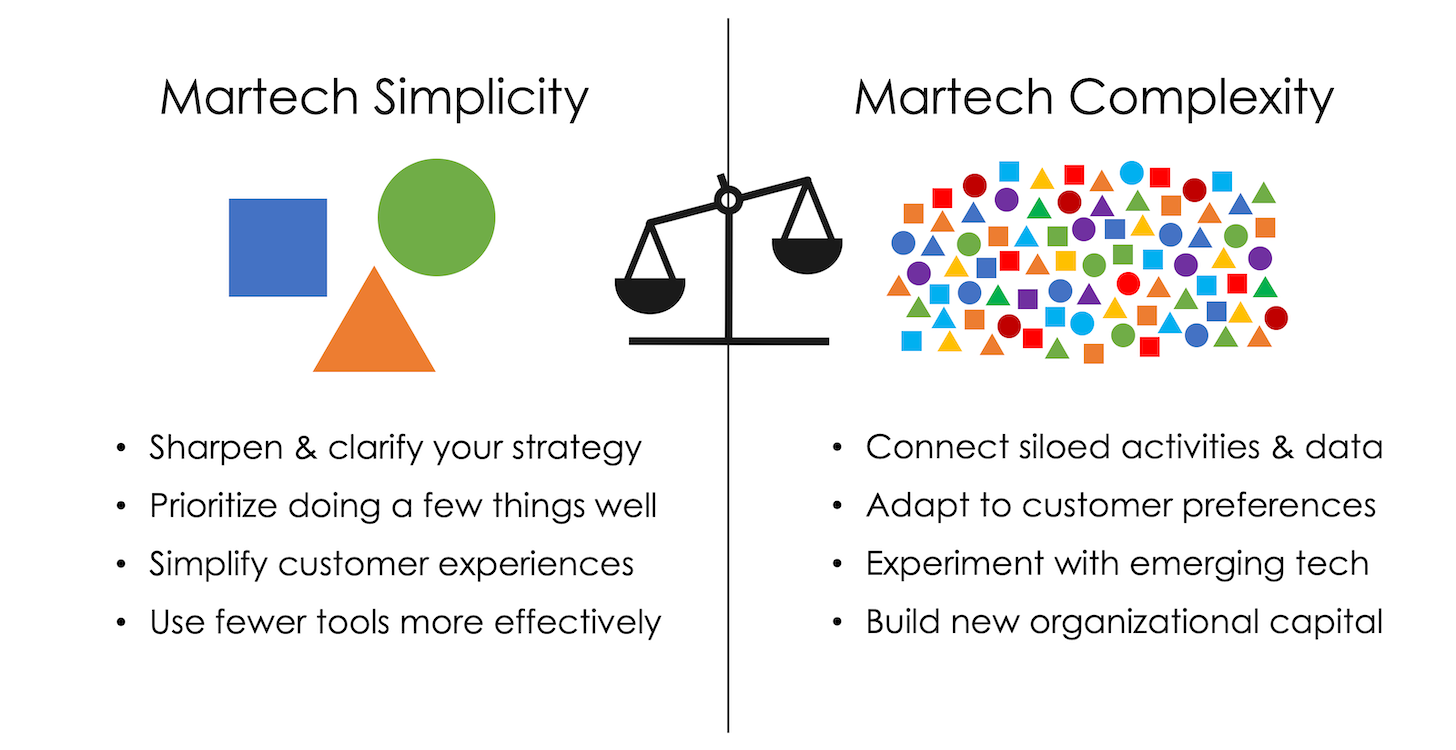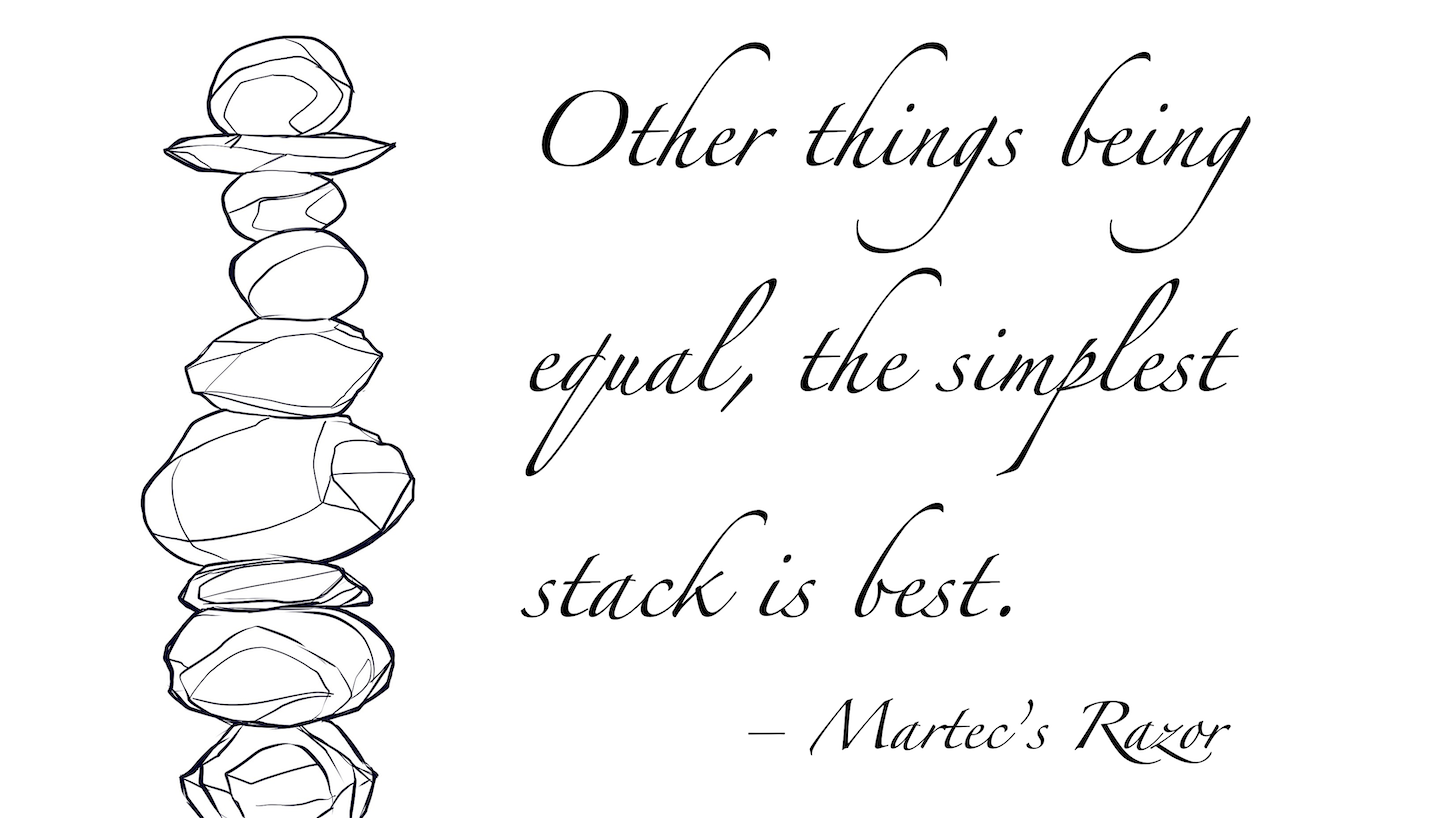When is a martech stack too complex?


At numerous organizations — but not all — their martech stack has grow to be too elaborate.
Aside from the anecdotal proof that I routinely hear on LinkedIn and Twitter threads, Gartner’s most new Advertising and marketing Engineering Study frames the dilemma quantitatively: on ordinary, the 324 company internet marketing know-how leaders they surveyed described that only 42% of their martech abilities are remaining utilised.
Which is down from 58% utilization in 2020.
You only will need two details to draw a line, and this line is headed in the mistaken course.

I’ll place aside my typical rant about martech stack utilization being a misguided metric and just take this at face worth. Whichever these respondents assumed they meant by utilization, the simple fact is that most of them believe it’s considerably less than 50 % of what it ought to be. And they imagine it’s dropped noticeably around the past two many years.
That just cannot be great.
Now, it is comprehensible how this could be trending in the erroneous course. The pandemic inspired an tremendous expense in digital transformation for organizations, incorporating a ton of new systems in all corners of their tech stacks. But primarily in advertising and marketing. Just get the 3 huge martech innovation themes that I predicted for 2022 — all of which seem to be on-observe, I’ll humbly take note. These encompass a ton of new tools and practices that have expanded the scope of martech functions at a lot of organizations.
Recalling Martec’s Regulation — technological know-how improvements speedier than businesses do — we shouldn’t be surprised that all this accelerated pull-ahead of new martech would be challenging for marketing teams to soak up immediately. But the included pandemic presents of The Great Resignation and silent quitting have exacerbated this problem even much more.
So is the remedy for every person to lower their martech stacks down by 58%?
For some firms, certainly. They’ve obtained way more tech than they are all set to productively use. They should simplify and concentration.
Provided the economic belt-tightening that quite a few internet marketing groups are very likely to deal with in 2023, it’s unquestionably a excellent time to evaluation your stack and shed any equipment that aren’t adding meaningful benefit. That might not be for the reason that of flaws with these resources, but constraints in your potential to productively harness them, at least at this moment. Either way, if you are not receiving impactful outcomes from them, they are ballast.
As Easy as Attainable, But No Less complicated
But I want to caution from swinging that pendulum as well considerably.
Martech is advanced, especially at companies that are even larger than a smaller business. This usually is not the fault of martech suppliers, even if it could make you really feel superior to blame them at times. It is a function of the complexity inherent in our environment right now. Electronic almost everything, digital just about everywhere has exploded complexity.
Reading a recent report from information system provider Adverity, What Is Shaping the CMO’s Roadmap?, this chart of “external things impacting marketing” stood out to me:

The escalating amount of platforms/channels = enhanced complexity.
The unpredictability of world occasions (black swan situations) = amplified complexity.
The growing complexity of viewers actions = greater complexity (it is in the label!).
GDPR and privacy regulations = elevated complexity.
Employing the appropriate people today/workers retention? Amplified complexity from the raising selection of expertise that we’re trying to get to address the complexities earlier mentioned. But if we’re not productive at this hard task, our martech organizational maturity can basically drop alternatively of develop — at a time when we most need that development.
All these things are “complex” in the perception that they don’t just have a ton of intricate relocating elements. They’re elaborate in the perception that there is a ton of interaction effects amongst them.
Most martech solutions are essentially striving to reduce — or at the very least assistance take care of – this complexity.
This is an important place because simplifying your martech stack does not simplify the external natural environment. Simplifying your martech stack may well even now be a terrific plan for a bunch of genuine good reasons, several of which boil down to martech organizational maturity: if you are not completely ready to extract far more worth from a much more complicated stack, then the complexity of your stack is carrying out a lot more damage than fantastic.
Balancing Martech Simplicity & Martech Complexity

Occam’s Razor — other issues remaining equivalent, the simplest explanation is commonly suitable — is a nugget of knowledge adaptable to so lots of issues. Approach: the easier the superior to offer decision-earning clarity. Prioritization: do fewer factors effectively. Purchaser practical experience: easier is pretty much normally less difficult and more pleasant.
This truism unquestionably applies to martech also.
Martec’s Razor: other points getting equal, the easiest stack is greatest.
But other factors aren’t normally equal. Connecting siloed internet marketing and product sales knowledge and functions typically increases complexity — extra transferring elements, more entangled. But for the sake of growing the performance of the business and the continuity of customer interactions across a broader established of touchpoints, that improved complexity can be value it.
The very same applies to adapting to modifying purchaser choices, experimenting with emerging systems, and developing new organizational capital by encouraging teams to access beyond the aged techniques of executing items. All of these points add complexity to martech operations, intermingling the aged and the new. But which is critical to development.
The harmony of martech management is to be constantly simplifying even though steadily acquiring your organization’s potential to deal with bigger complexity in situations in which it can insert price.
Aligning Stack Complexity to Martech Maturity
This provides me to the diagram at the best of this put up, which I’ll redraw right here:

A complicated martech stack is not inherently superior or bad. It’s fantastic or bad in the context of the martech organizational maturity of the company managing it.
A advanced stack in a experienced martech business, which has thoughtfully architected it, built-in it effectively into their environment, and created the proper enablement and governance to support teams thoroughly leverage it, can be an incredibly powerful asset.
That actual exact stack, in the palms of an firm with much less martech maturity, is a recipe for catastrophe.
It is okay if your organization is nonetheless early in its journey of building your martech maturity. Most providers are likely in the remaining 50 % of the over chart at this issue. Creating stable martech maturity usually takes time. But if you let the complexity of your stack get ahead of your maturity, it will likely gradual down your progress as an alternative of accelerating it.
Brian Halligan, HubSpot’s co-founder and government chairman, has often claimed, “Companies are more probable to die of overeating than hunger. They are inclined to do also lots of points.” This certainly applies to martech abilities.
Hold the complexity of your stack in verify with your organization’s martech maturity.
And when in doubt, bear in mind this:









